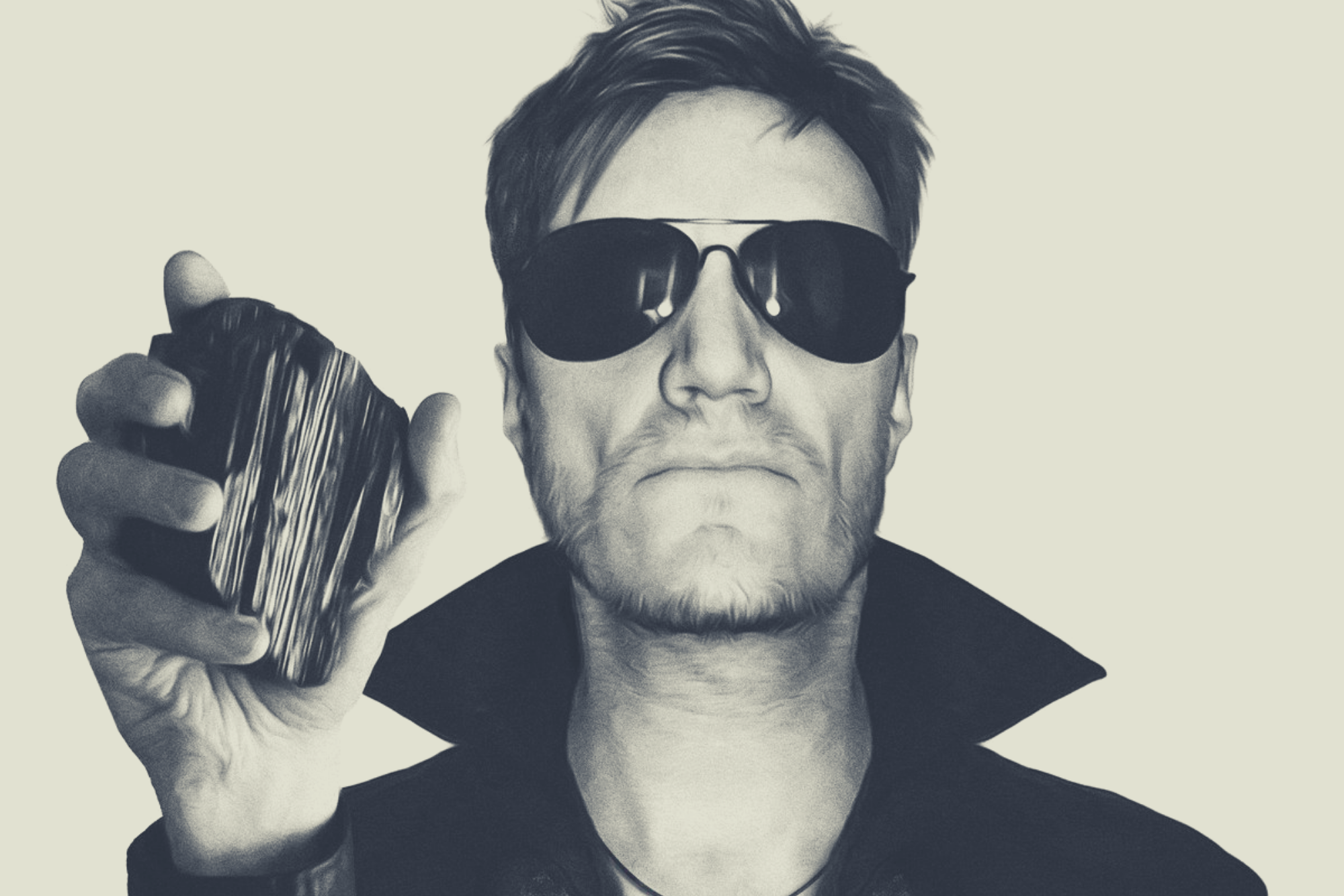As much as I like the immediacy of the web, I love the experience of walking up to a magazine rack, surveying the field, finding something that catches my eye, and getting lost inside the pages. It’s how I discovered Lemon magazine years ago. To be fair, Lemon is more of a “coffee table book” than a “magazine.”
The textural and conceptual richness that Colin Metcalf and Kevin Grady, the duo responsible for the book, put into each issue goes far beyond the scope of traditional magazine publishing. The two seriously obsess on the details. Each edition is unified by a single theme. You can feel the chemistry between the pages. It’s “pop” but doesn’t reek of propaganda, falsity, or meaningless collaborations. The inspiration for the last issue was “Heroes, featuring Daft Punk striking Bowie’s famous pose from the cover of said album. It’s a fantastic tribute to the brilliance of David Bowie and an exciting twist on pop culture. They even got the man himself to contribute artwork to the issue.
Each Lemon explores a specific theme, which is common with magazines. What’s uncommon about Lemon is the extent to which we explore that theme.
Kevin Grady
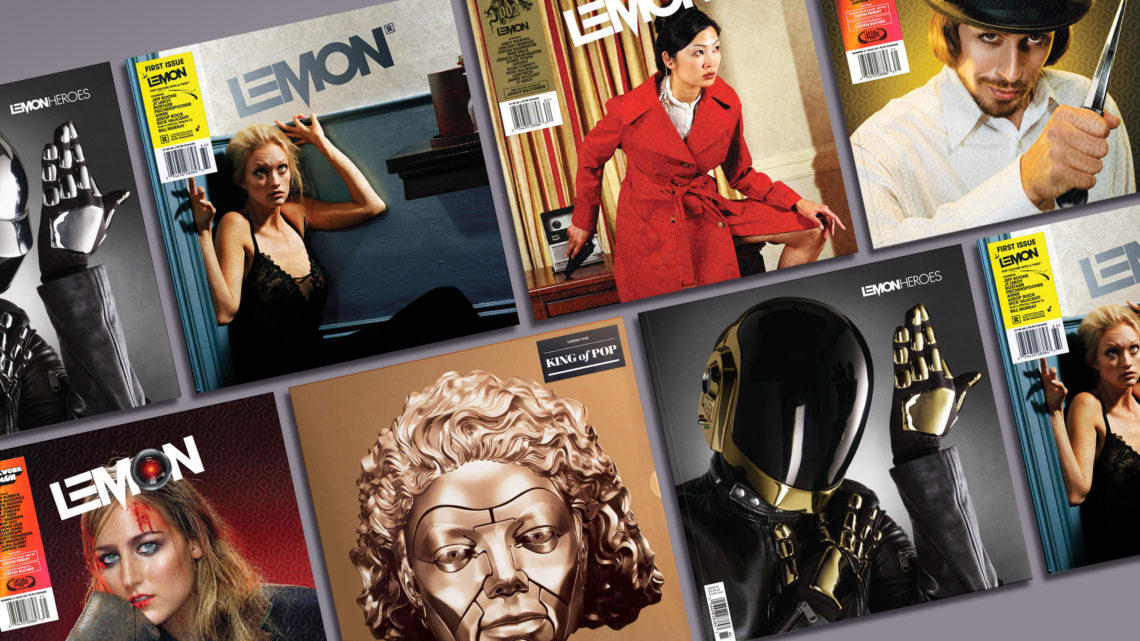
It’s been about a year since the Heroes issue hit the stands, which means it’s about time for another one. The book’s fifth installment will raise a sequined glove for Michael Jackson, which I’m sure will be another jaw-dropping, thought-provoking issue. Here’s a conversation I had with Kevin Grady a while back.
How did you initially link up with Colin Metcalf?
Kevin Grady: Colin and I met in college in Colorado many years ago. The first encounter I had with him was when he insulted my bass playing in our dorm. We eventually became good friends and talked for years about doing some kind of venture together. In 2002, we started GUM. It was lots of fun but really cost-prohibitive to produce. So, in 2006, we decided to move to a more conventional format, and Lemon was born.
Lemon is essentially Colin and me. We edit, design, and publish it. We’ve had some help over the years from some very talented friends and associates, including Robert Bundy, Adam Larson, and Guido Vitti. It’s a real labor of love, fueled mostly by an obsession with all things Pop and a love of print.
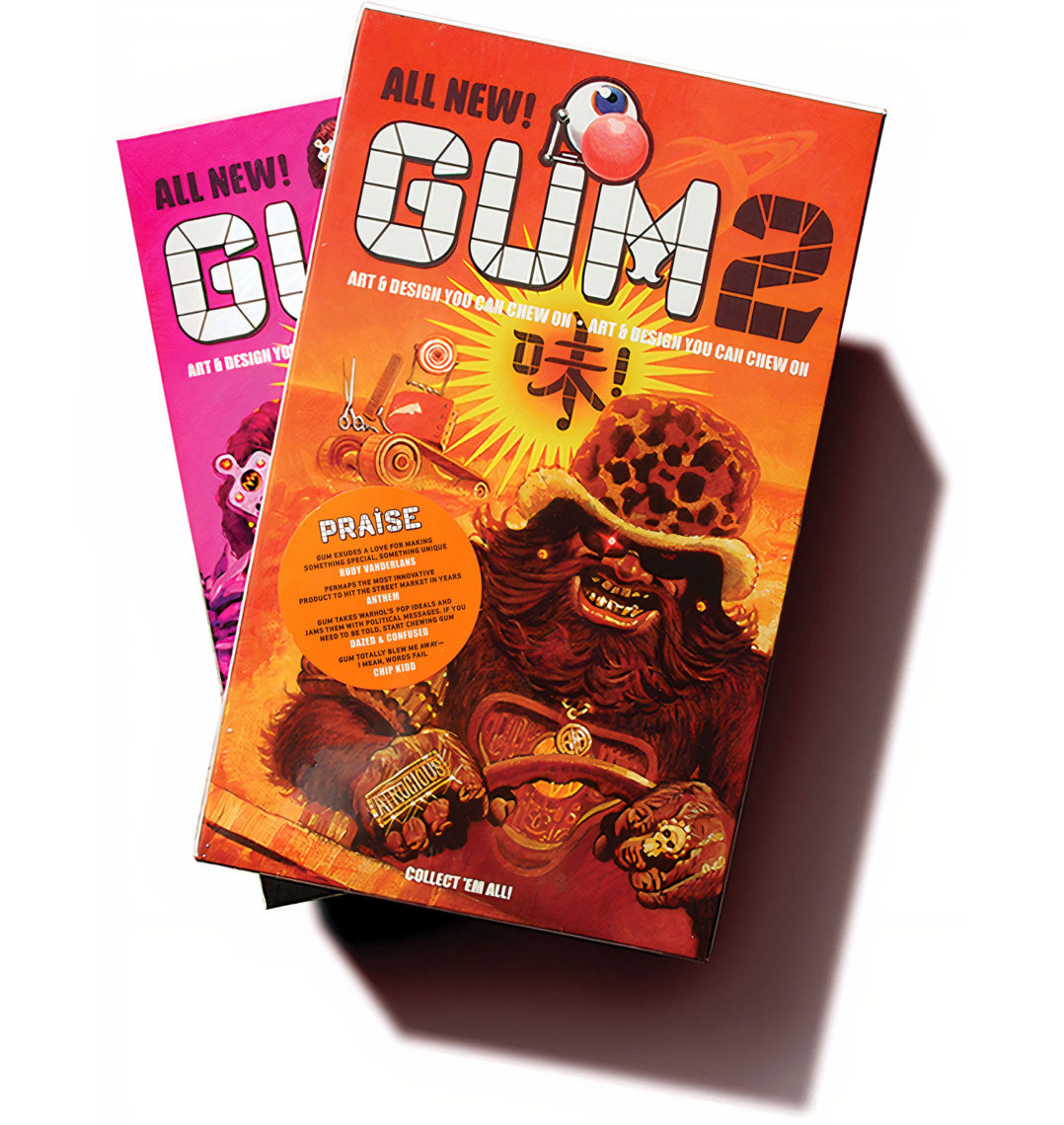
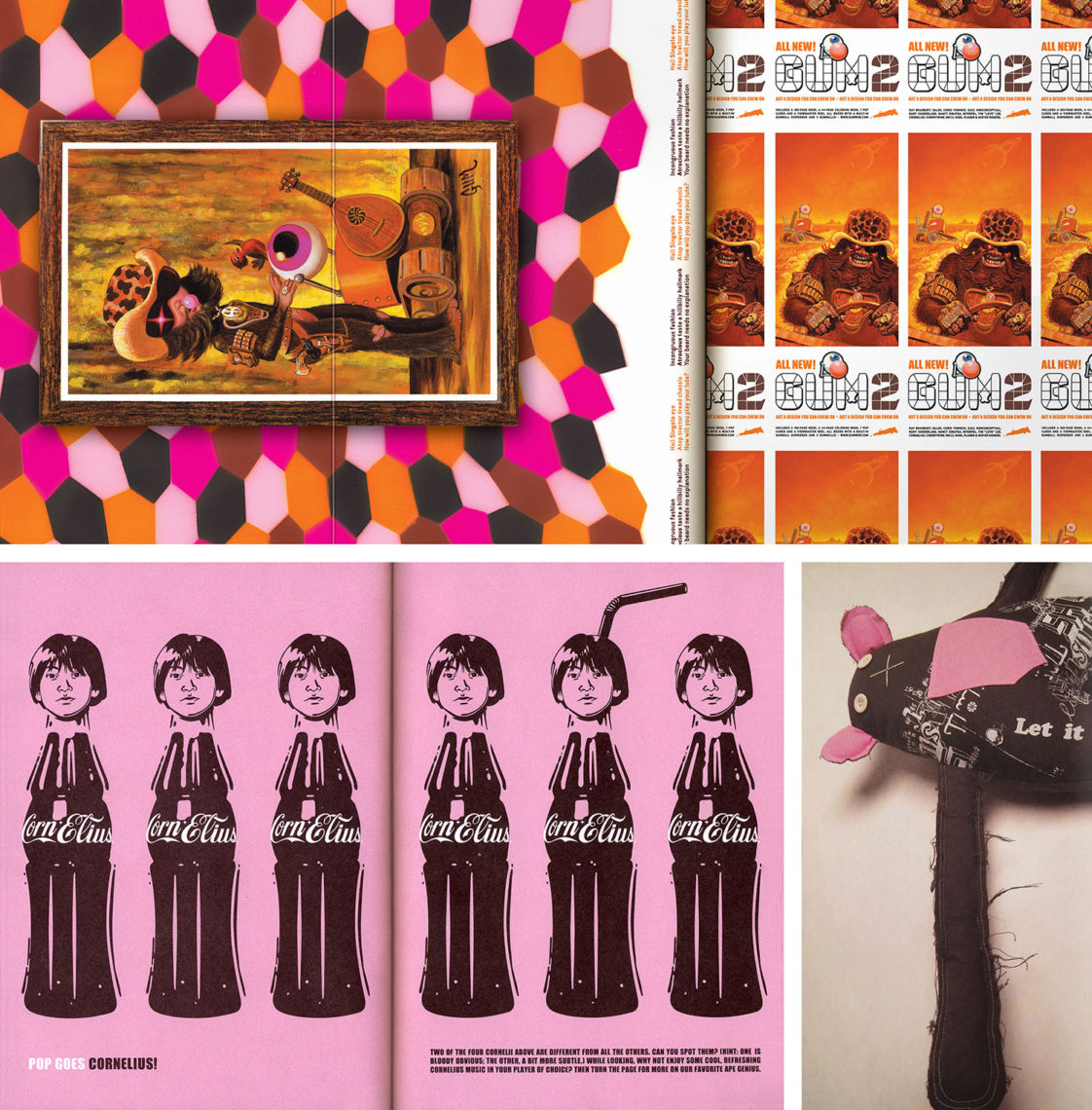
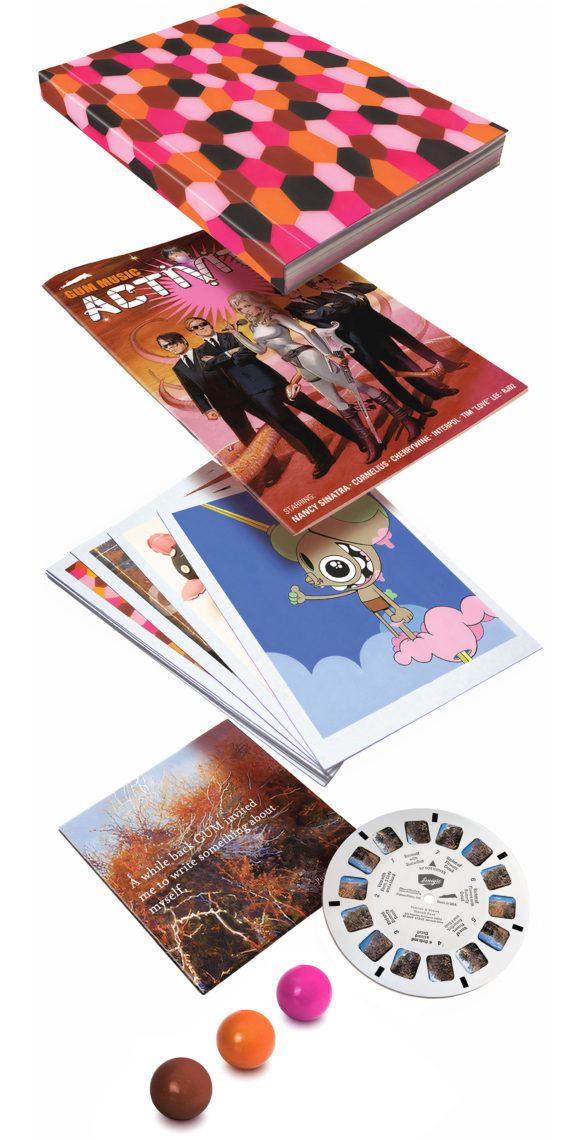
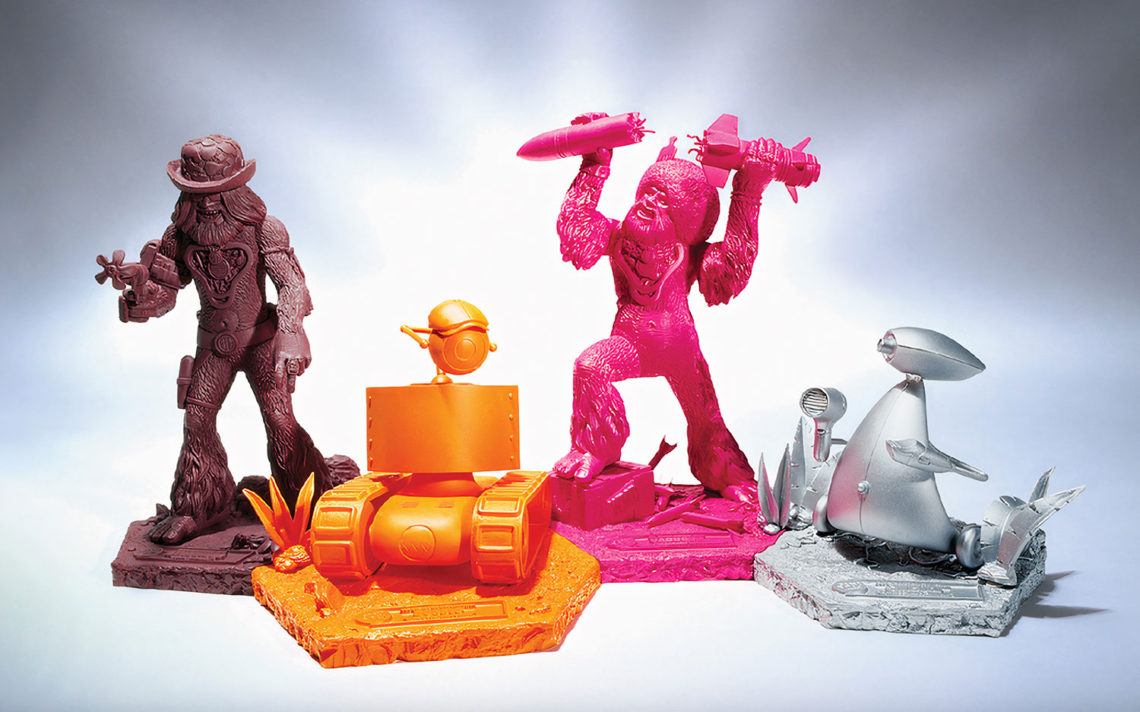
What bassline were you riffing when Colin called out? Was he right—are you any good?
God knows. Something with very few notes. And he was probably right—I was pretty new with the instrument, so I wasn’t exactly Jaco Pastorius. But I was better than Colin!
Can you articulate what it is about pop culture that fascinates you so much?
I think it’s the sense of escape that it provides. I’m a fairly serious person, and pop culture, in general, is a needed release from the hardships of life. It’s also part of our collective memory, which I like. I’d rather refer to some pop-culture element that everyone can relate to on the cover of Lemon than do something so obscure that it means very little to very few. I think that’s why Warhol was so successful—he was working with mass shared experiences.
How would you describe your style and personality? Colin’s too.
We’re both fashion-conscious but too old to really care what the kids are wearing in terms of style. We’re bored to death with sneakers and t-shirts. I guess you could say that we’re trying to age gracefully.
Personality-wise, I think most people would say we’re pretty nice guys. We both do a fair amount of work with ad agencies and are always surprised by the Super Egos we encounter. That’s not us. We both feel confident in our creative abilities but have a firm understanding of our weaknesses, which keeps us pretty humble.
When we’re together, we also spend a lot of time making funny voices. We imitate Tennessee Tuxedo and Chumley a lot (now we’re dating ourselves!). I have no idea why.
Personal experience tells me that Super Egos usually come from a place of insecurity. Not really a question, but if you have something to say about it, please do.
I tend to agree with that. There’s generally a massive lack of perspective involved as well.
What kind of work do you do with ad agencies? Is that your daytime job? Do you ever knock back a noon scotch n soda and pretend you’re Don Draper?
It’s been my daytime job at various points in my career, but I’ve mostly worked in graphic design companies. I’ve also worked on my own as a freelancer. Generally, I’m very critical of advertising. I first got into it to work on the Truth anti-tobacco campaign, which I felt was a great use of my time. Currently, I’m the design director at Crispin Porter + Bogusky. It’s a challenging environment. The scotch and soda generally have to wait until nighttime, though, sadly.
What does your desk look like?
As far as Lemon is concerned, my “desk” has been my trusty Powerbook G4. I mostly work sitting on a couch in my living room. Not the best ergonomic situation.
While I’m working, I do love to surround myself with some of the things I love: CDs of whatever music I’m listening to at the moment (right now, it’s The Psychedelic Furs, Wild Beasts, and Mew), art and design books (currently a Barney Bubbles retrospective called “Reasons to Be Cheerful”) and so on.
I’ll pick these up and leaf through them now and again as I’m working. I absolutely love the tactile nature of books and magazines and also the physical manifestation of music through packaging. Music without excellent cover art just doesn’t sound as good.
Barney Bubbles’ logo design for Ian Dury & the Blockheads is pretty amazing. Have you ever bought an album strictly because of the cover art?
I do that all the time. I’m a big believer that the cover art literally affects how we hear the music itself. An album with a crappy cover just doesn’t sound as good to me.

What’s more valuable, the music on your device or the device itself?
The music!
How do you go about putting together an issue? Do you take a lot of pitches, or do you assign your vision? Has an unknown artist hit you up outta know where that you ended up doing a feature on?
Editorial responsibility has fallen mostly on my shoulders. I simply concentrate on content that is personally exciting to me and assign it from there.
Each Lemon explores a specific theme, which is common with magazines. What’s uncommon about Lemon is the extent to which we explore that theme. Each issue is like a big costume party, and all of our “guests” are expected to dress the part. We started with “Supernatural” and “Espionage,” but our two most recent editions have looked to specific people for thematic direction. So, our third edition ended up being a Kubrick tribute called “A Clockwork Lemon,” and the current one is “Heroes,” a celebration of David Bowie’s creative legacy. We had Daft Punk imitating Bowie’s iconic “Heroes” pose on the cover. We talked to astronaut Buzz Aldrin, a nod to Major Tom. It’s a fun approach.
And we do get lots of submissions. Very occasionally, these have led to actual assignments in Lemon.

As you’re an apparent fan of Bowie, did you discover anything cool/weird/intriguing about him while putting together the issue?
Keanan Duffty (fashion designer, musician, and TV host) said that Bowie told him he doesn’t consider himself as someone who’s particularly interested in fashion, or something to that effect. That was a pretty surprising thing to hear.
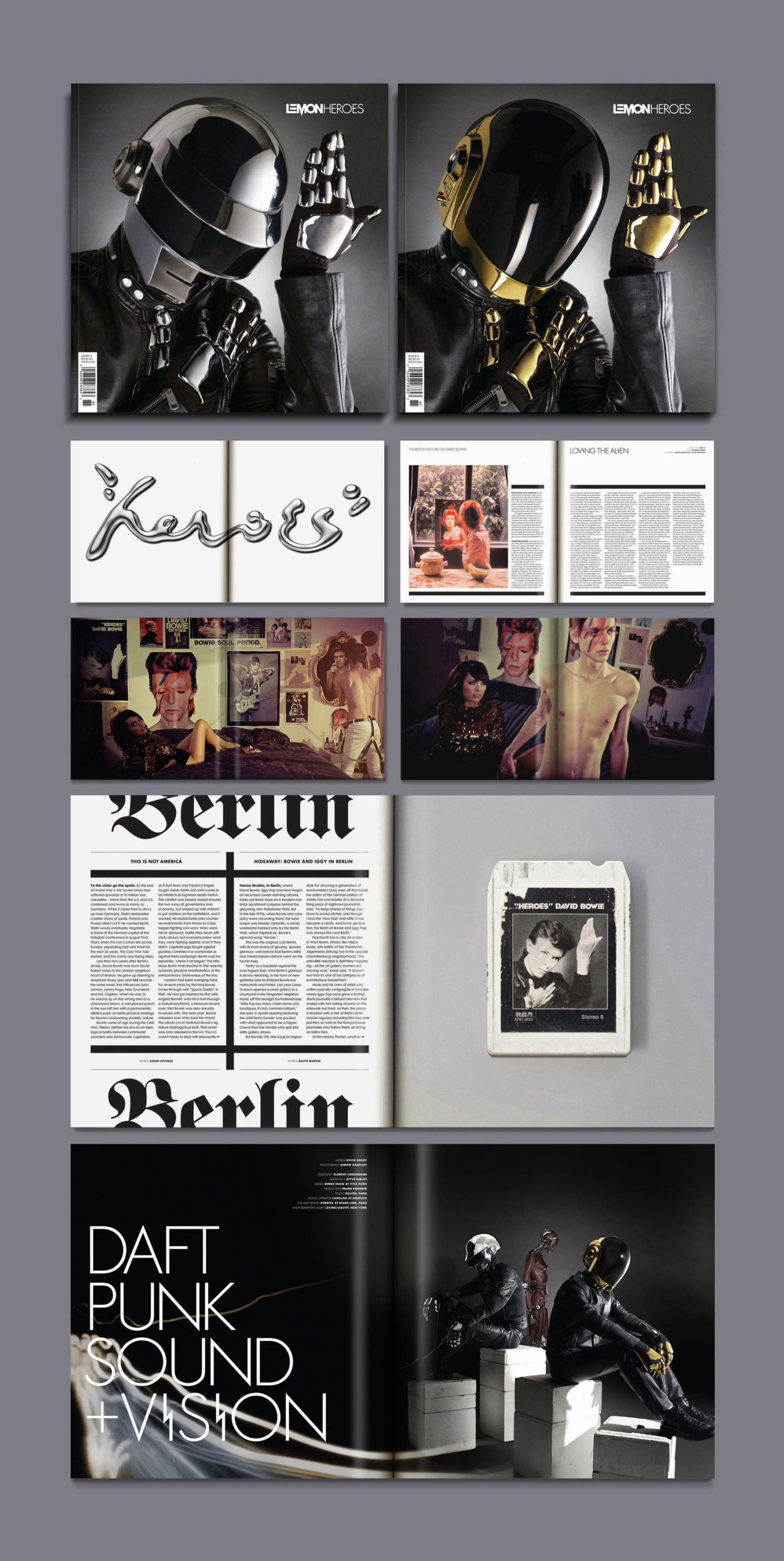
What magazines do you pick up and read? What is it about them that you like?
I read very few specific magazines regularly. I do pick up Grafik, a design magazine published in the UK, and am consistently inspired by the work I see there. Otherwise, I tend to pick up the odd issue of anything that grabs me based on content: Interview, Psychology Today, whatever looks interesting for reading on the plane.
I love collecting older publications and have compiled a complete collection of Ralph Ginzburg’s Avant-Garde magazine, designed by Herb Lubalin. That magazine was a big inspiration for Lemon, even down to the distinctive square format. I love looking through old books and magazines, particularly ones from the late ’60s and early ’70s. I just love the general aesthetic and simplicity of much of the artwork and design from back then.
If you could choose 3 people to read your magazine regularly, who would that be?
Um, at the risk of over-doing it: David Bowie. Because he’s David Bowie.
Jarvis Cocker, because his overall artistic sensibility seems very similar to ours. I’ve even considered asking him to be a guest editor for an issue.
And Andy Warhol. Which might be a little complicated, but who knows: maybe there’s an all-encompassing collective consciousness or something. God knows he’s been an enormous influence.
How do you feel about the internet concerning your job?
To me, the internet represents targeted entertainment and access to information. I use YouTube instead of my TV for most of my entertainment, and I love having access to information on whatever esoteric subject I’m into at the moment. But I have to admit that I’ve never been creatively excited by the medium itself. As a designer, the lack of a tactile aspect really leaves me cold.
Do you think the Internet generation will miss out on something important with technology like the Kindle?
It’s hard to say because what’s important to one generation may not be that important to another, and I’m obviously biased. I do think the shift from analog to digital mediums is inevitable, so what will be, will be, I guess.
What’s the most frustrating aspect of your job?
Since Lemon comes out so infrequently, we really want each issue to be outstanding. And that adds a lot of pressure. It can at times induce a kind of creative paralysis because once it’s printed, it’s printed, and that’s that. It’s not so much frustrating as challenging.
How much time do you spend putting together an issue? Do you already have a theme in mind for your next issue?
It takes several months of initial exploration and then a good two months of consistent work. I’m trying to think of the next theme. I am searching for another personality with as much cultural resonance as Stanley Kubrick and David Bowie, whom we featured in our past two editions. Maybe it’ll be the “King of Pop” issue…
In your opinion, why is print publishing having such a hard time?
Publishing is going through a natural transition and extension into various digital media. There’s no fighting it. Ultimately advertising dollars are going in many directions beyond print, so it’s simply harder to find money to pay for printing and distribution.
I love the idea of having “sponsors” rather than advertisers. Has this approach helped Lemon?
I think so, yes. We don’t make sense as an ordinary ad buy, particularly in this economy. But, offering a more prominent and exclusive presence in such an elaborate publication has been an attractive alternative for some of Lemon‘s advertisers. It’s been working out pretty well so far.
If money and resources weren’t in the equation, how would Lemon be different than it is right now?
It would come out a lot more frequently, probably quarterly. Otherwise, I think we’re doing things pretty much how we’d optimally like to do them.
